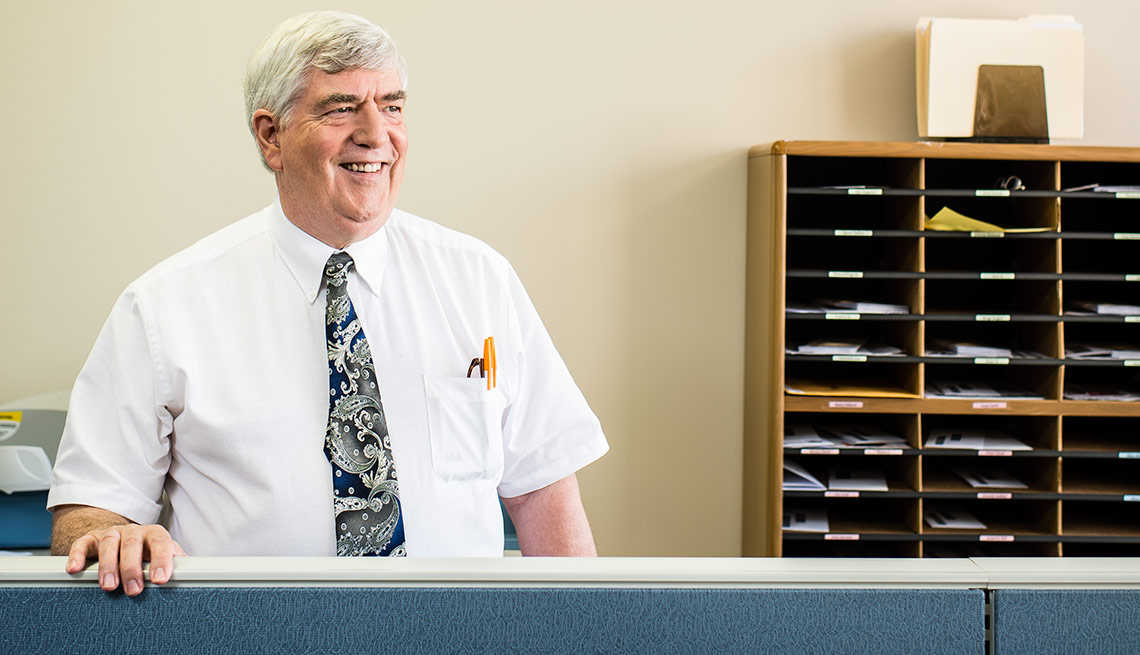
Older workers are more valuable in the workforce - aarp
- Select a language for the TTS:
- UK English Female
- UK English Male
- US English Female
- US English Male
- Australian Female
- Australian Male
- Language selected: (auto detect) - EN
Play all audios:

A new study from North Carolina State University found that older programmers knew a wider variety of topics than younger colleagues did, answered questions better and were more adept at
certain newer systems. "We think that if you're familiar with older technology," says study coauthor Emerson Murphy-Hill, "you're better able to understand new
technology." Also, Cappelli says, older workers tend to be motivated by causes like community, mission and a chance to make the world a better place; younger workers are more driven by
factors that directly benefit themselves, such as money and promotions. But perhaps the greatest asset older workers bring is experience — their workplace wisdom. They've learned how to
get along with people, solve problems without drama and call for help when necessary. That's what Erin Barbarino, 54, is proving in her new job with Sphere Offshore Solutions, a
Houston marine-services firm that helps move oil and gas drilling rigs. Barbarino was laid off from her energy-industry job in the summer of 2012 but was hired by Sphere that September. She
brought with her a wealth of contacts with specialized knowledge — a key strength because she's involved in assembling crews quickly, and in her business a bad hire can mean an
ecological disaster. "I know people all over the globe I can call," Barbarino says. "They're all older workers, many in their 70s. These are the people who have the
experience we need." WITH AGE COMES ABILITY Experience also helps older workers compensate for the physical and mental changes that accompany aging. Younger workers enjoy a reputation
as adept task-switchers who can better juggle the technological distractions of the modern office. But according to neuroscientist Adam Gazzaley, M.D., at the University of California, San
Francisco, "multitasking" is a misnomer. The brain can't actually do two things at once, he says. Instead, it switches from one task to the other, and with every switch
there's a slight delay, or "cost." And the cost increases as we age. Gazzaley's research, however, shows that this cognitive decline starts in the early 20s, and physical
exercise can slow or even halt the decline. Given the wide variations between people, he says, a smart, active 75-year-old could score higher on cognitive tests than a 40-year-old slouch on
the couch. And an experienced worker can easily steer around this "sea of distractions" by closing the office door and turning off email. (Always-on younger colleagues could be
less likely to embrace the idea of unplugging.) That may explain why older workers might score low on cognitive tests in laboratories but show no drop-off in their job performance or rate of
workplace accidents. "It comes with experience," says Wharton's Cappelli. "More experienced workers are more careful." Bottom line: The human brain is adaptable,
and we can learn skills throughout our lives if given the opportunity. A case in point is Rosa Gibson, 66, of San Diego. She lost her job managing a retail clothing store when it closed in
2005. "Once I got over the shock," she says, "I decided to try something different." Gibson started volunteering with Scripps Health, a nonprofit health care system in
Southern California; there she used her bilingual skills in community outreach. Several years and many classes later, she's now earning a bachelor's degree in public health and
working as a clinical trials assistant. "I may be 80 by the time I get my degree at the rate I'm going, but that's OK," she says. "Everybody out there has something
to teach you." What about creativity and innovation, often cited as key strengths of younger employees? While it's true that young minds may produce a higher volume of ideas,
business guru Frans Johansson argues in his book _The Medici Effect_ that creativity comes more from making connections among diverse thoughts: The more knowledge you have, the more
connections you can make. For example, Kay Hall, 56, was able to creatively recycle her sales skills when she found a job at a law firm in Seattle. Now she looks for service opportunities
for the firm's clients, using data-analysis techniques learned on her old job. "It was completely innovative for the legal field," she says. Even in physically demanding
fields, older employers have advantages, according to a study published in 2011. Researchers at the University of Mannheim, in Germany, studied teams of workers at a BMW plant. They found
that productivity increased consistently as workers aged, right up to mandatory retirement, then at age 65. That's because veterans knew where to focus their efforts to deal with
unexpected problems and prevent the most costly mistakes.
